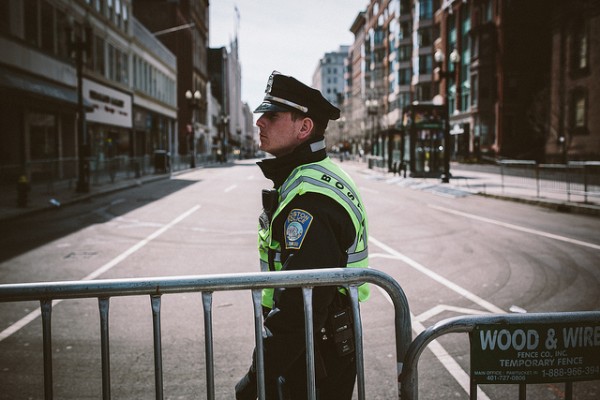
Some rights reserved by Pete Tschudy
Even Violent Drug Cartels Fear God
By Damien Cave
The New York Times Magazine
“If the economy worked for the common good, there would be no Zetas. There would be no cartels,” says Robert Coogan, the chaplain at Cereso. Here the Zetas, Mexico’s most feared crime syndicate, run operations from the inside. And they are always watching.
Alexei Navalny’s Day in Court
By Joshua Yaffa
Foreign Affairs
Alexei Navalny, the well-known opposition leader against Vladimir Putin, sat Wednesday in a courtroom in Kirov, waiting for the state’s repressive apparatus — this time in a form of a trial — to be unleashed. Unfortunately for Putin, the law in this case may have a harder time consolidating power than as it did, say, with Pussy Riot. Navalny, Yaffa notes, is a formidable opponent, and has the charisma to bring the rest of Russia with him.
Ana Montes did much harm spying for Cuba. Chances are, you haven’t heard of her
By Jim Popkin
Washington Post Magazine
Once a decorated intelligence analyst, Montes now sits in a small cell, facing a similar fate to that befell Aldrich Ames and Robert Hanssen before her. Recruted in 1984, Montes probably seemed like a godsend for Cuba — a leftist, bilingual, and with a top secret security clearence. But with family and personal ties to the FBI and the intelligence community, Montes’ damage wasn’t just politically dangerous — it was personal.
The School
By C.J. Chivers
Esquire
“The School” is C.J. Chivers’ award-winning story on the 2004 Chechen terrorist attack on the Russian town of Beslin, where seperatists took at least eleven-hundred hostages. Although terrorism had been a part of the fight since before the first war, Basayev made it clear Russian citizens — even children — were worthy targets.
An Army of One
By Jeffrey D. Simon
Foreign Policy
What makes lone wolf terrorists so dangerous? asks Simon in the context of the Boston Marathon bombing earlier this week. Or, to put it another way, so threatening? Simon identifies several types of “lone wolves” and threat their freedom as individual actors, so to speak, poses.
The Thatcher Legacy and Complex Pictures of Friendship by Sara Chupein-Soroka
Unrest in the Middle East: A Conversation With Siddique and Wuite by Abul-Hasanat Siddique and Casper Wuite
Venezuela Results- Recount or Political Theatre? by Marie Metz
Sectarianism in the Arab World by Alexander Corbeil
Iran and the Sanctions Dilemma by Allison Kushner